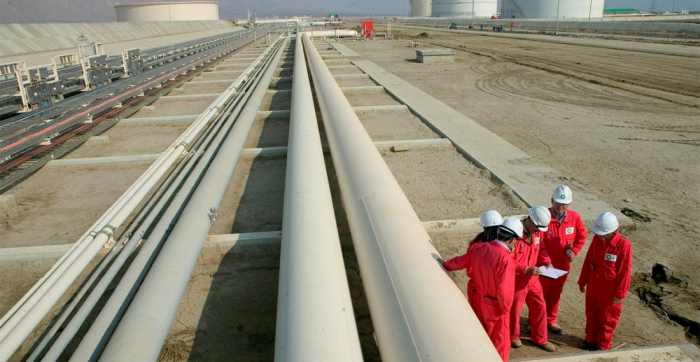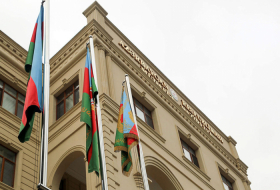In the shifting landscape of global energy dynamics and geopolitical uncertainties, the relationship between Azerbaijan and the European Union (EU) has emerged as a beacon of mutually beneficial and strategic partnership. The relationship between the two sides is multilayered, and is of wider geostrategic importance. While the EU, among others, is a major partner for Azerbaijan constituting about 65 percent of its total foreign trade, Azerbaijan is a critical country for the EU in the Europe-Asia connectivity, and as an energy supplier. The cooperation in the field of energy is particularly of great importance for both sides and has gained momentum against the backdrop of regional geopolitical upheavals and efforts to pursue green transition.
The two sides have forged a strategic partnership in the field of energy that is pivotal for both sides economic prosperity and energy security. Ursula von der Leyen, President of the European Commission, called Azerbaijan a “reliable partner” of the EU, when she signed the deal on the strategic partnership with President Ilham Aliyev of Azerbaijan, on July 18, 2022. This partnership, as highlighted by the Southern Gas Corridor Advisory Council (SGC) and the 2nd Green Energy Advisory Council which took place in Baku, Azerbaijan on March 1-2, 2024, is founded on tangible achievements and shared goals, particularly in the realm of energy cooperation.
“Faced with increased Russian violence and a continued unjustified war on our doorstep, it is increasingly clear that, for Europe, there will be no return to business as usual in its energy relations with Russia. That space is now filled by other trusted and reliable energy partners. And we found exactly that in Azerbaijan”, said Kadri Simson, the EU Energy Commissioner, during her speech at the inaugural session of the Advisory Council, which was attended by the representatives of 23 countries in Baku.
As Commissioner Simson stated the Southern Gas Corridor (SGC), a monumental energy infrastructure project aimed at diversifying Europe’s gas supply sources through the imports of Azerbaijani gas, has become one of the cornerstones of Azerbaijan-EU relations. Commissioner Simson’s remarks underscored the significant progress made since the inception of the SGC, with the first flows of Azerbaijani gas to the EU commencing in December 2020. The project has not only provided Europe with stable and secure gas supplies but has also strengthened the energy partnership between Azerbaijan and the EU.
Azerbaijan’s role as a reliable energy partner for the EU has become increasingly crucial, especially in the face of geopolitical uncertainties and the imperative for energy diversification. The EU’s commitment to Azerbaijan’s long-term strategic energy cooperation is evident in its efforts to expand the Southern Gas Corridor and double gas trade volumes to 20 billion cubic meters (bcm) by 2027. According to Azerbaijan’s Energy Minister, the expansion of the SGC will be carried out depending on the market needs. Last year, Azerbaijan increased its overall gas exports by nine per cent up to 22bcm which included 12bcm exported to Europe via the SGC. Its main buyers are currently Italy, Greece, Romania, Hungary and Bulgaria. “There are many, new, partner countries who are willing to receive additional volumes of natural gas, even though we are transitioning away from fossil fuels,” said Commissioner Simson in Baku.
Ukraine and Moldova, the two countries that strongly need to diversify the energy suppliers and put an end to the imports from Russia, are amongst the European countries aspiring to join the list of buyers of the Azerbaijani gas. The Bulgarian parliament’s press centre announced in early March that Bulgaria has started negotiations with Azerbaijan to increase gas supplies to Romania, Moldova and Ukraine through the future vertical Balkan gas corridor. “The excellent relations and strategic dialogue between Sofia and Baku are increasingly important for the diversification of the supply of energy sources for the Bulgarian economy, especially after Russia’s military aggression against Ukraine,” said Bulgarian Parliament Speaker Rosen Zhelyazkov in his meeting with the Azerbaijani President Ilham Aliyev in Baku on March 4.
Bulgaria currently receives between 1-1.5bcm of Azerbaijani gas per year, which provide about 40% of the country’s gas needs. Zhelyazkov announced his country’s intention to join also the renewable energy projects of Azerbaijan, in particular the Black Sea Submarine Cable Project. This project, which was announced at the “Agreement on strategic partnership on green energy” signed on December 17, 2022 in Bucharest, Romania envisions exporting Azerbaijan’s electricity to Hungary via Georgia and Romania and creating a scheme that will benefit also Ukraine and Moldova.
Thus, beyond the realm of traditional energy, the EU-Azerbaijan partnership is expanding to embrace clean energy transitions and renewable energy development. Azerbaijan’s remarkable progress in renewable energy underscores its commitment to sustainability and combating climate change. The European Union and Azerbaijan have signed a memorandum of understanding on wind energy cooperation at the second Ministerial Meeting of the EU-Azerbaijan Green Energy Advisory Council on March 1. This agreement “will pave the way for European renewable energy companies to tap the huge wind power potential of Azerbaijan, to help push forward the clean energy transition in the region, and to potentially generate new renewable energy supplies for Europe”, the European Commission’s Directorate-General of Energy said in a news release.
Moreover, Azerbaijan’s hosting of the upcoming UN Climate Change Conference (COP29) further solidifies its position as a regional leader in clean energy transitions. According to President Aliyev, Azerbaijan is committed to use the revenues from its traditional energy exports to finance the country’s efforts to expand the renewable energy production. In an interview with Euronews, President Aliyev highlighted the significant potential the Caspian Sea and its role in the ambitious renewable energy agenda of the country. “The Caspian Sea potential of Azerbaijan is 157 gigawatts, which is based on the assessment of International Finance Corporation. And we already started this important journey. And we plan to use renewables maybe in the 10-year time at the maximum degree and reduce the consumption of natural gas domestically,” President Aliyev stated.
The cooperation between Azerbaijan and the EU has thus provided a strong impetus for the development of the renewable energy sector, along with the traditional energy industry, of the South Caucasian republic. This partnership between the sides has proved to be of critical importance for the energy security of Europe, particularly the Eastern European countries. Therefore, the expansion of the energy exports of Azerbaijan is poised to make an important contribution to the efforts of those countries, including Ukraine and Moldova, to diversify their energy suppliers and safeguard their energy security.
AzVision.az
More about:
















































